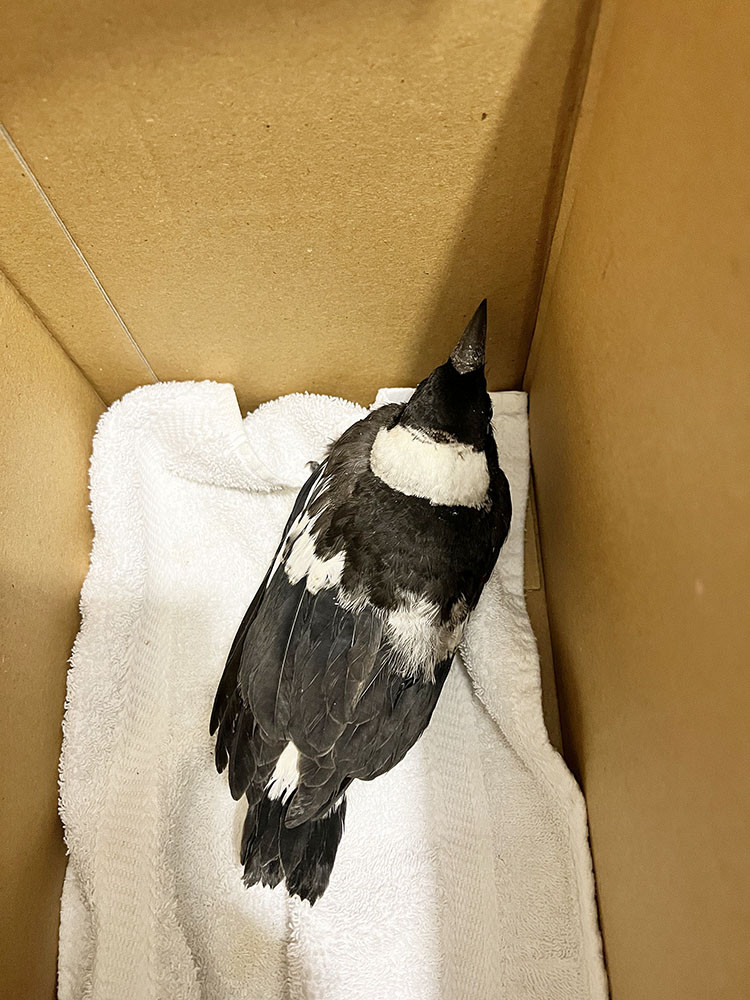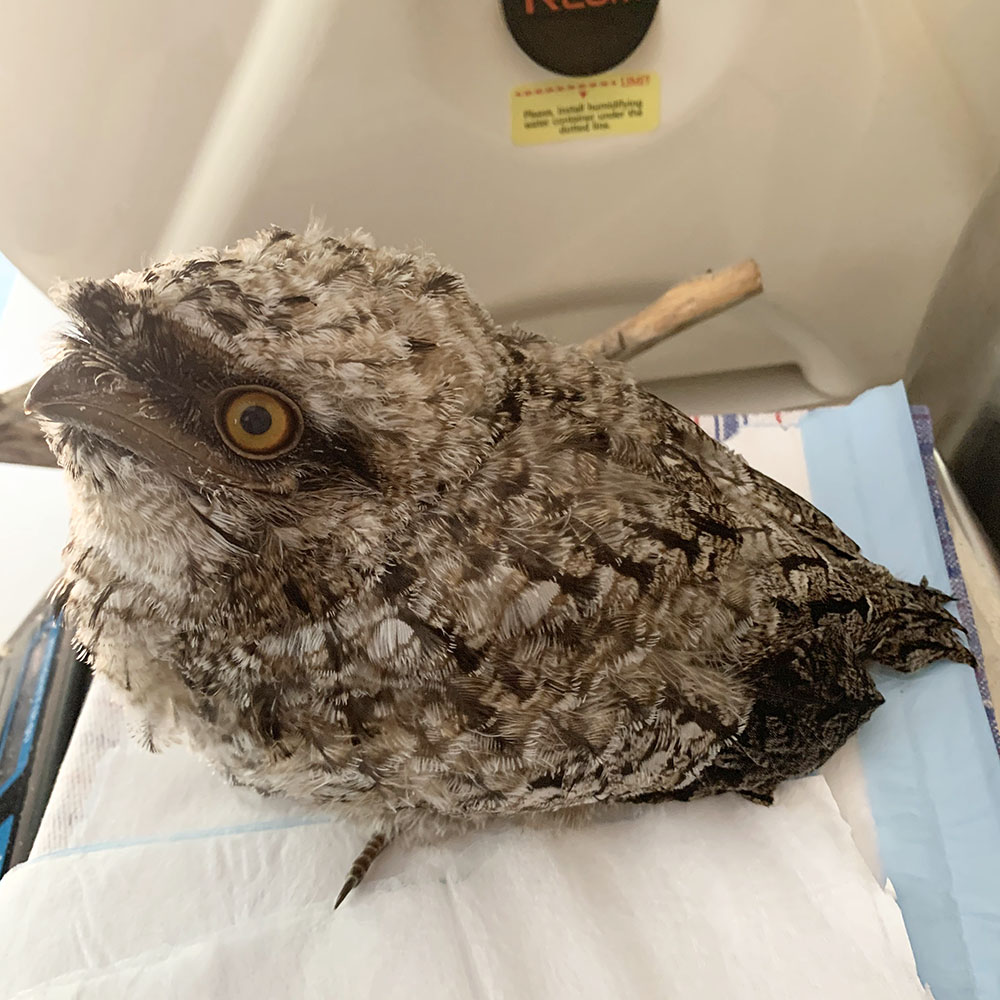Finding Out Who The Parents Are …
Some young juvenile birds are now out of the nest and learning to hunt for food and fine tune flying skills whilst under the watchful eye of parents. This is also the time that a lot of these birds are picked up by well-meaning people thinking they are too young to be out of the nest. Volunteer rescuers spend a fair amount of their time trying to reunite these young ones back with their parents.
The reunite process is not as simple as it sounds. If a bird is taken to the Vet, there is a delay in getting them picked up as Vets are busy and often call us at the end of the day. If too late in the day, we have to feed and overnight the bird and try the next day to find the Parents. Lots of Magpies are being picked up lately so we have to loiter around near where the young one was found and try to find who the parents are.
It’s time consuming as the family groups move around the local area so they may only be in that street once a day and we can’t leave the young one unattended. Once we find the parents, we need to wait till we see the young one being fed and accepted by the group.
Sometimes the parent has recognised their offspring but have rejected them. This tells us something is wrong, and the bird needs to be checked at the wildlife hospital. The parents always know when something is wrong. We try to reunite first unless they are obviously injured or unwell. Some species are easier to reunite than others. Kookaburras for example are very territorial and will have a sentinel bird fly near to check out the young one in their territory. They will then go and get the rest of the clan and the parents will come to the fledgling.
One reunite I did with a young Currawong went a bit differently to plan as I thought I had found the parent as it was at the same local school that the young one was found and was feeding another juvenile. I put the one I had near this Mum and went back to hide and observe from my car. The Mother Currawong flew away but found the right Mother and came back with her and she immediately flew off to find food for her juvenile.


HOW CAN I HELP?
• If you see a young bird that may need help don’t rush in and pick it up. WATCH and WAIT. The parents may be nearby.
• If a young one is obviously injured then contain it in a box, place in a warm dark area and call a wildlife group for help.
• Always give the exact location that the bird was found and only give to a registered rescuer/ carer so we can get the right help for it.
• Some people try to raise and keep a bird without training or knowledge of its species. Our aim is always to return to parents where possible as a young.
• Native animal has a better chance of success out in the wild if it is raised by its parents. They teach them skills that we cannot.
